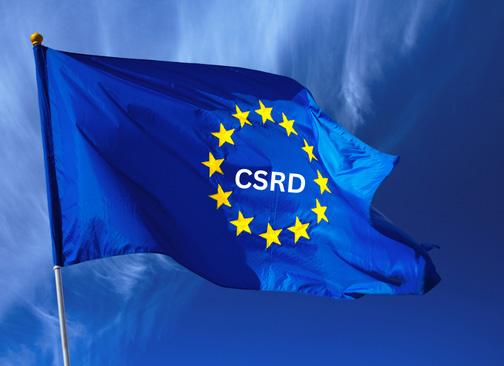
3 minute read
Sustainability What is CSRD?
by Pedemex BV
Dr Stephanie Wray, RSK Nature Repair
Emily Lee, Nature Positive, an RSK Group Company
The CSRD, or Corporate Sustainability Reporting Directive, is a piece of European legislation which came into force in 2023 and seeks to improve transparency for investors, consumers and other stakeholders relating to the financial, environmental and social impacts of businesses operating in the EU.
This is part of the European Green Deal, launched in 2020, which is seeking to transform Europe’s economy into a sustainable and resource-efficient one. Its key goals include achieving climate neutrality by 2050, having more sustainable value chains (environmentally and socially) and restoring, protecting and enhancing the EU’s natural resources.
Building on the Non-Financial Reporting Directive (NFRD), CSRD mandates companies to disclose their material impacts on the environment and society, bringing sustainability reporting up to the same level as financial reporting by:
- Introducing mandatory reporting standards,
- Requiring a climate transition plan from all ‘in scope’ companies.
- Requiring a double materiality approach – that is, an understanding of both the impacts of the company on people and the environment, as well as how those sustainability issues may represent business risk.
- Introducing enforcement penalties for non-compliance.
- Requiring third party assurance of reporting.
Relevant organisations that do business within the EU will have to comply through phased implementation due over the next approximately five years. Listed enterprises will be the first to have to comply, followed by “large enterprises” (which have two of: over 250 employees; revenues of over EUR 40 million; assets over EUR 20 million) and then listed SMEs.
The CSRD may still impact companies headquartered outside of the EU, if they have significant business operations in Europe. Specifically, if a company’s European subsidiary meets the thresholds above, it must comply with the CSRD’s reporting requirements. Even without an EU subsidiary, a company may still be subject to the CSRD if it generates over EUR 150 million in EU revenue for two consecutive years and meets other criteria such as having a physical presence in the EU or significant local revenue. The dates for compliance with CSRD have been subject to the ‘stop the clock’ proposals of the EU Omnibus Proposals aimed at simplifying sustainability reporting and hence the precise dates for compliance for different types of business is currently not known.

The wide scope (Figure 1 above) of the disclosures has been a concern for many companies and just gathering the data to report has been seen as an onerous task. The assessment also includes evaluating risks, opportunities and their interactions with a company’s strategy, value chain and business model.










